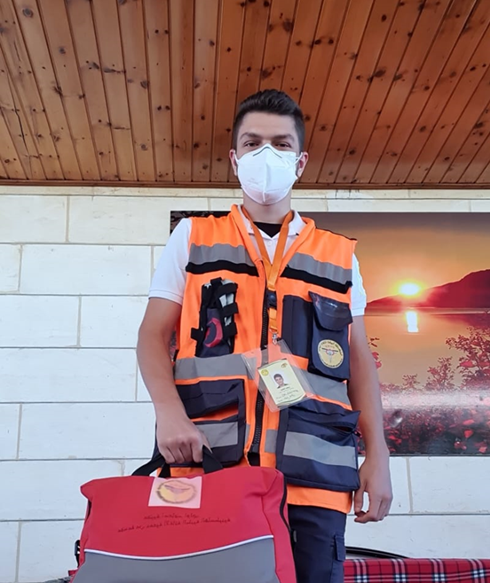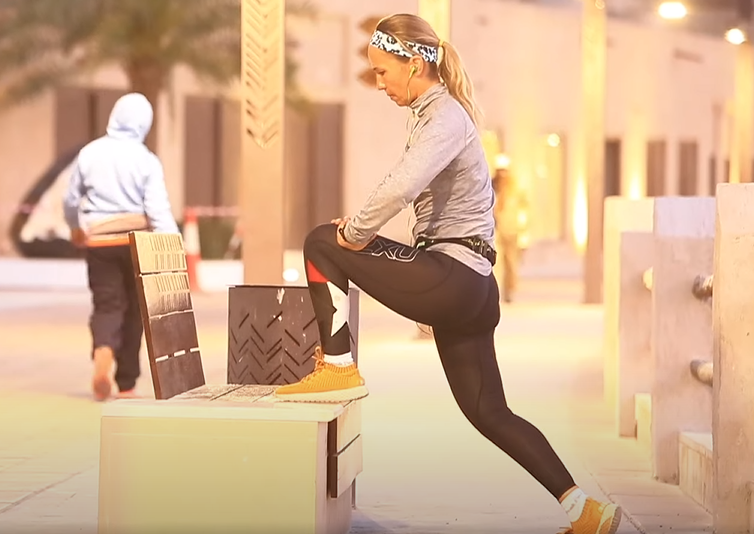Learning in the Time of Corona

Lately, Judy wakes up every morning at 9:45, takes her notebooks and pens, sits on her bed or on the chair comfortably, and opens her laptop, ready to start her e-learning at home.
After the UAE’s announcement of the closure of schools and universities for a month starting from March 8th until April 5th, and relying on distance learning curricula as an initiative to limit the spread of coronavirus, or COVID-19, the psychology student, Judy Basbous, started preparing her required university courses through an interactive e-learning platform from the American University in Dubai.
This platform has been organized by the Ministry of Education and Youth by partnering with the Mohammed Bin Rashid Smart Learning Program, and other electronic platforms. “Most universities in the country are implementing distance learning through the ‘blackboard’ platform, which gives me and other students a chance to continue their classes,” said Basbous in an interview. “In this way, we will end our university classes on time, without any delay.”
“Distance learning saved me the time spent on transport to and from the university. Now, I’m able to wake up 15 minutes before my interactive electronic class,” Basbous explained how she spends her quarantine days. “Distance learning is fun and comfortable. I feel like I’m in class since I participate and interact with my classmates and professors.”
“Sometimes it’s possible that the call cuts and our voices are unclear, but this depends on the number of students attending the electronic class, and how the internet’s quality is,” answered Basbous when asked whether she is facing any technical issues.
The Telecommunications Regulatory Authority in the UAE also announced through its official website that it had coordinated with the companies Du and Etisalat to offer free internet service through the phones of students who don’t have home internet services. This initiative came with the goal of offering distance learning curricula to all the country’s students.
A business student from the American University of Sharjah, Nadine Abd El-Gawad, agreed with Basbous regarding the quality of distance learning. “The only problem that could be strange or new to us with distance learning is how we’re going to submit our final projects, and what way the professors will resort to in order to prepare for exams,” said Abd El-Gawad through a phone call.
In return, Reem Lotfy Zahran, a math teacher from the Queen International School in Dubai answers this question. “The administrations at schools and universities are still discussing a way to prepare the exams, and that is by coordinating with the Ministry of Education and Youth,” said Mrs. Zahran through a phone call. “We hope that students return back to schools and universities by the scheduled time, but in the case that we continue with the distance learning, students should interact and respond with their teachers to reach the best results.”
To note, Basbous and students in the UAE are not the only ones who resorted to distance learning. After the UAE decided to close schools and universities, many Arab and foreign countries started taking this decision to limit the spread of the coronavirus, which reached to a number of infected cases of 222 thousand by March 19th, according to the statistics by the John Hopkins Coronavirus Research Center.
Basbous pointed out that she is not the only one from her family who is resorting to contacting from a distance. “Coronavirus forced everyone to stay at their homes, and do their work from home. My mother works at GEMS Wellington School, and she is now in charge of teaching her students at a distance, and my father is an electrical engineer, who deals with his work electronically. Even my brother, who’s in the United States, is resorting to distance learning until the end of his academic semester.”
Translated by: Mais Othman
Edited by: Raseel Amro


